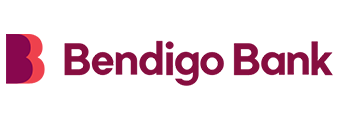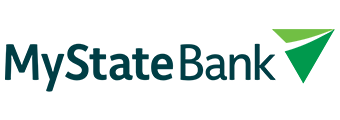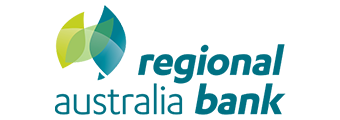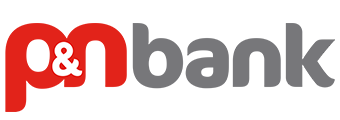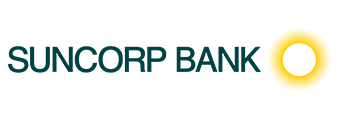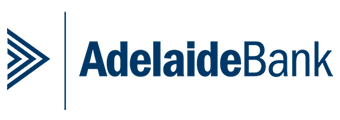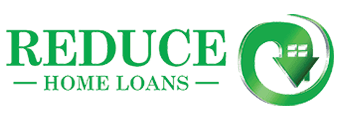Below are some of the lowest variable-rate home loans for owner occupiers, with 80% LVR and paying P&I, according to InfoChoice's product database (some banks may allow up to 90% LVR):
|
Brand |
Product |
Advertised Rate % Per Annum |
Comparison Rate % Per Annum |
|---|---|---|---|
|
Bank Australia |
Clean Energy - New Builds |
5.18% |
5.77% |
|
Police Bank |
First Home Loan* |
5.34% |
5.41% |
|
Pacific Mortgage Group |
Standard Variable |
5.39% |
5.39% |
|
G&C Mutual |
Essential Worker Home Loan |
5.45% |
5.49% |
|
Newcastle Permanent |
Real Deal Special Offer |
5.49% |
5.53% |
|
Unloan |
Variable Home Loan |
5.49% |
5.40% |
*For eligible participants in the Home Guarantee Scheme.
What is a home loan and how does it work?
A home loan, also referred to as a mortgage, is a loan agreement between the borrower and a lender where an amount of money is borrowed from a financial institution for the purpose of purchasing a home or property.
Repayments are made up of the amount borrowed, as well as interest charged by the lender. The amount of interest you pay is determined by the interest rate set by the lender. The interest rate affects your repayment amount and is therefore the most important part of the loan.
Any property purchased is used as security for the loan, meaning the lender has the right to sell it should the borrower fail to make their loan repayments. This enables the lender to settle the debt.
In Australia, home loans are typically paid back over an average of 25 to 30 years. It takes less time to pay off a mortgage if the borrower contributes more to their monthly repayments than agreed upon with the bank or lending institution.
Australians typically borrow between 80% and 95% of a property’s value. This is referred to as the loan principal or loan amount.
The remainder of the money used to purchase a property is referred to as a deposit. A deposit is generally required to be saved and paid before securing the loan.
Borrowers are also encouraged to compare home loans from over 100 home loan providers available in Australia.
How to compare home loans & checklist
When comparing home loans, it’s important to know what features you are looking for in a loan and then find the best priced loan to suit your home loan needs.
Before you start comparing home loans, it is important to create a checklist so that you can easily tick off whether a provider can meet your particular criteria. Here’s what should be on your checklist.
Interest rate
The interest rates fee that is the money a borrower is charged for borrowing money. Interest is expressed as a percentage of the total amount of the loan. For instance, if you borrow money from an authorised lender for a house, you pay interest on it. The interest rate set by your lender is based on the Reserve Bank of Australia’s official cash rate and determines how much interest you will earn or pay.
There are two interest rate options: variable and fixed.
- With a variable rate, the interest can fluctuate in line with the official cash rate set by the Reserve Bank of Australia (RBA) although some lenders make independent changes.
- A fixed rate means your rate remains the same for a fixed period of time, agreed upon by you and the lender. This period is usually between 1 to 5 years. After this, period your loan reverts back to a variable rate.
Loan eligibility
Certain things will hold you in good stead when it comes to being eligible for a home loan. Lenders will look at your personal and financial background to determine if you will be a good candidate. They look for things such as Australian citizenship, stable employment, deposit saved, good credit history and income.
Loan Features
Look to see what features would suit you for a loan that will last you over 20 years. Some important features could be extra repayments, redraw and offset account.
Being able to make extra repayments means you will pay off your loan quicker whilst being able to redraw means, once you have paid enough back into the loan, you can access that amount again without having to re-apply for another loan. An offset account is very beneficial too. The money in that account is offset against your loan reducing your interest rate.
Repayment options
There are two repayment options for home loans.
- The first is principal and interest. With this option, you make monthly repayments that include both the principal (amount borrowed) as well as the interest. This type of repayment option will generally see the entire loan paid off within 25 to 30 years.
- The second type of repayment option is Interest only With this option, your monthly repayments are considerably lower as you are only paying off the interest and not the initial amount that you borrowed. You can, however, contribute to the principal at any point in time, to start paying down the debt. As for the principal amount you borrowed, it will not decrease unless you choose to make extra repayments. Keep in mind that interest-only loans may cost you more over the term of the loan.
Loan type
There are a number home loans types to choose from.
- A basic loan has a low interest rate but very few features. This loan may not be for you if you want to make extra repayments or redraw at a later date.
- A standard loan offers more flexibility than a basic loan. It offers features such as redraw, ability to switch to fixed rate or even split the loan into fixed and variable portions. This loan usually offers an offset account.
- Home loan packages include a standard loan with an interest rate discount of up to 1.2%, depending on your loan amount. The package generally includes an annual package fee of up to $400, with benefits such as a free transaction account and no annual credit card fee.
- With a Line of credit loan, you have a credit spending limit. It works much like a credit card. You can take out as much money as you need as long as it doesn’t exceed your loan limit. Eventually you will need to repay the loan in full.
- A bridging loan is used when you need to buy a new house but are yet to sell your existing one. This is a loan taken out in addition to your existing one, meaning that you pay the interest on two loans at the one time.
- A Construction loan is used If you are building a new house. The benefit of this type of loan is that you can access the funds as you need them to pay the construction workers and you only pay interest on the funds you have used. Construction loans are usually available at a variable interest rate. The loan will revert to principal and interest repayments once construction is finished.
Fact Sheets
One way to assess home loans is to compare the key fact sheets from different lenders.
Fact sheets should provide borrowers with an immense amount of information, including the total amount to be paid back over the life of the loan, repayment calculations, fees and charges. Fact sheets will also provide a personalised comparison rate that can help borrowers compare one particular loan to another.
Credit providers must provide you with a key fact sheet for a home loan if you request one – unless you are choosing an interest-only or a line of credit loan.
Who provides Australia’s home loans?
There is no shortage of home loan providers in Australia for both refinancing and investers, all providing a mix of variable, fixed, line of credit/home equity, low doc and reverse mortgages. To give you an idea of how many products are available, InfoChoice offers over 963 variable home loan products and over 559 fixed rate products to calculate, compare and potentially save from.
Put simply, there are many lenders in the Australian mortgage market, each offering a different range of products and benefits. Even though there is an abundance to choose from, it’s important to know that they are all regulated by the Australian Prudential Regulation Authority (APRA) and other regulatory bodies.The one thing you can do to see if you want to deal with any of these lenders, is to look up customer reviews and see what their customer service is like.
Lenders can be broken down into the types of providers they are:
The Big Four Home Loans
The big four banks in Australian banking are Westpac, Commonwealth, NAB and ANZ. These banks are always competitive and offer banking apps, large customer service teams, vast ATM coverage and branches in most suburbs making it easy to always find them. They also have a larger range of mortgage products to choose from.
Alternative banks
The big four aren’t the only banks in Australia. There are numerous smaller local banks with their own range of home loans and products. These banks include:
- AMP
- Bank of Melbourne
- Bank of Queensland
- Bankwest
- Bendigo Bank
- Beyond Bank
- HSBC
- ING
- Macquarie Bank
- St George
- Ubank
Credit unions and non-bank lenders
There are a multitude of Australian institutions such as credit unions and building societies that are member owned, meaning they work for their members not for shareholders. Many times, these institutions are regional and are not present in every territory.
Some examples are:
Digital lenders
These banks don’t have a store front and do things entirely online and with phone support. These banks offer competitive rates.
Some examples are:
Glossary
| Amortised Loan | This is a type of loan that requires the borrower to make scheduled, periodic payments. These payments are applied to both the principal and interest and pays off the interest first, with any remaining amount put towards reducing the principal. |
|---|---|
| Bridging Loan | A bridging loan bridges the gap between the sale of one property and the purchase of another. |
| Comparison Rate | A Comparison Rate is the interest rate plus fees and charges rolled into a single percentage rate for ease of comparison. |
| Conveyancer | A conveyancer is a specialist lawyer. This particular lawyer specialises in the legal aspects of buying and selling property. |
| Conveyancing | Conveyancing is the transfer of legal title of real property from one person to another. |
| Deposit | The money required you need to contribute towards your home loan application. |
| Exit cost | The fee charged to borrowers if they exit their home loan early. This is usually applied to fixed interest rate loans. |
| Fixed interest rate | Fixed interest rates are interest rates that are locked in for a certain period of time, usually between one and five years. |
| Introductory or Honeymoon Rate | Discounted interest rates for an initial introductory period are known as introductory or honeymoon rates. These rates will usually revert to a higher standard rate once the honeymoon period ends. |
| Lenders Mortgage Insurance (LMI) | An insurance that protects the mortgage lender, if a borrower defaults on their mortgage. An LMI is typically applied to mortgages where the loan to value ratio (LVR) is higher than 80%, or the borrower has a deposit of less than 20%. |
| Loan to Value Ratio (LVR) | Most lenders require an LVR Of 80%, this means the borrower will pay 20% of the value of the property. Essentially, it is the size of a home loan compared to the value of the property. |
| Offset | An offset account is a transaction bank account connected to your home loan. The money from this account is used to offset your mortgage, which means you’re only charged interest on the difference between the total loan balance and the amount offset. For example, if you owe $200,000 on your mortgage but you have $20,000 in your offset account, the bank would only calculate interest on $180,000. |
| Fees | Mortgages usually come with a range of such as redraw fees that are charged monthly or annually over the life of the loan. |
| Overdraft | An overdraft is an extension of credit from a lending institution. Overdrafts are granted when an account reaches zero or there are insufficient funds to make a withdrawal. In property. It can be used as a line of credit, secured by the equity in the property. |
| Redraw | A redraw facility allows mortgage holders top access extra repayments made into their home loan. Redraw balances can help reduce interest on your home loan. |
| Refinancing | Refinancing is when a mortgage holder takes out a new loan to pay the existing loan. Refinancing usually incorporates lower interest rates and fees. |
| Repayment Holiday | Many Australians took a ‘repayment holiday’ during the COVID-19 pandemic. A repayment holiday puts your mortgage on hold during times of financial stress. |
| Split Rate Home Loans | A split home loan is when you divide your loan into two parts. This means a portion of the loan could come under a fixed interest rate with the remainder being variable. |
| Stamp Duty | Stamp duty is a tax on a property transaction. It is charged by each state and territory, with the amount varying between each. Stamp duty depends on factors such as the value of the property, primary or residence or investment property and your residency status. |
| Switching Fees | The fees paid if you switch from one lender to another. |
| Upfront Fees | Fees charged to process your home loan application. Fees could include appraisal fee, application fee and establishment fees. |
| Variable Rate Loan | Variable home loans are defined by the potential for interest rate fluctuations. The variable interest rate may be changed regularly by a lender and is usually dictated by the Reserve Bank of Australia’s (RBA) official cash rate and changes in market interest rates. Due to interest rate fluctuations, your monthly repayments could vary from month to month. With lower exit fees, more flexible repayment options and useful features like offset accounts and redraw facilities, variable home loans have been found to be the preferred choice for many Australians. |


